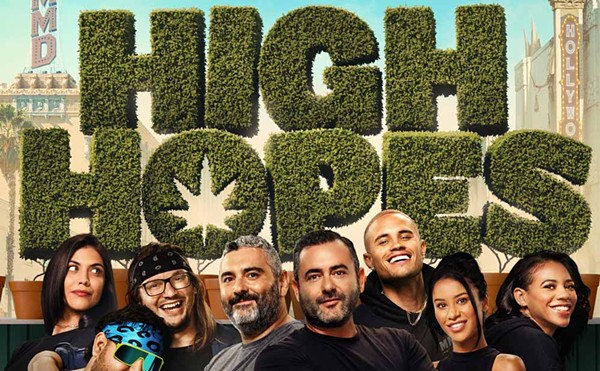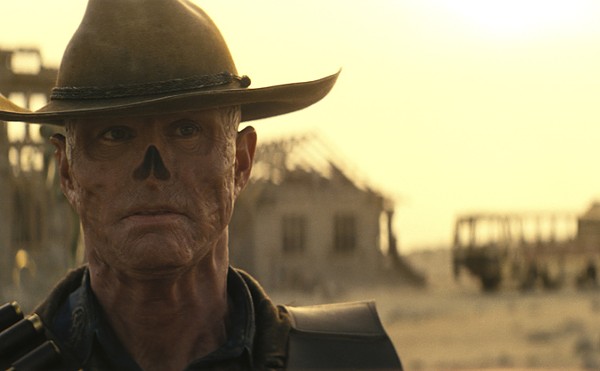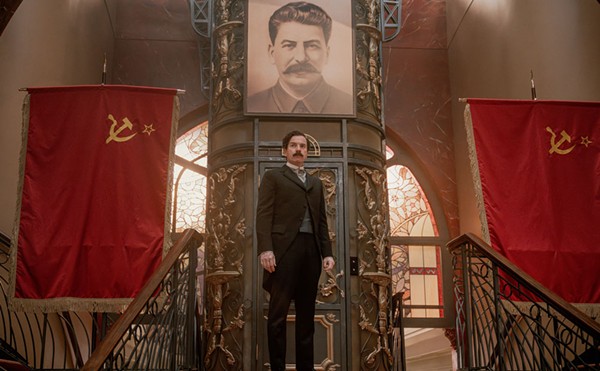Super
1 Star
(NR)
Writer-director James Gunn's Super is an exercise in cinematic psychopathology, emboldened by its indie-film trappings and the easily manipulated cheers of its festival-circuit audience, it luxuriates in and celebrates pointless violence and aimless vengeance. It's Taxi Driver as feel-good movie.
The Office's Rainn Wilson stars as Frank D'Arbo, a quiet man riddled with the elaborate, religiously tinged visions familiar to schizophrenics. He says he's only experienced two moments of joy in his life – one in which he minimally helped foil a crime and the other when he married Sarah Helgeland (Liv Tyler), a supposedly reformed drug-addict stripper.
One morning, he wakes to find Sarah gone, along with her things. He comes to find that she's fallen back into her old habits and is under the spell of a local drug dealer, Jacques (an emaciated Kevin Bacon). After an emotional attempt to take her back ends with Frank's beating, he decides, with the help of a mammoth messianic vision, to don a mask and fight crime as the Crimson Bolt.
At first, Frank, aided by a nasty pipe wrench, disproportionately doles out “justice” by beating purse-snatchers and johns nearly to death. But when he meets comic-shop employee Libby (Ellen Page), a bloodthirsty geek with no apparent moral compass, the two team up and escalate their vigilante violence.
As Frank, Wilson and his comic detachment fall flat, while Page, though game, seems just as confused by the film's shifting tones and meandering plot as the audience.
By the time Frank bashes the skull of a jerk who cuts in line at a movie theater, and Libby smashes a thug nearly in half with a car in front of countless witnesses, one expects their antics to catch up with them and the noose around their necks to begin tightening.
Instead, Gunn treats the material like a slightly disturbed boy might enjoy the Faces of Death series: with excitable and terrifying glee. The brutal murders that Frank and Libby commit are filmed by Gunn with realism, not over-the-top splatter. That would be unsettling but understandable if there was any trace of a moral lesson, but there is nothing of the sort in Super.
Eventually, the Crimson Bolt and his sidekick set their sights on Jacques and his gang with the hope of recovering Frank's estranged wife and setting her straight. The climax of this already consequence-free environment is one of pure hostility as the two “superheroes” storm Jacques' estate, leaving a trail of carnage in their wake.
In the late '90s, films like American History X fought against censorship and condemnation for daring to show Edward Norton's neo-Nazi committing horrific acts against his enemies. (Anyone who's seen that one likely still recalls the sight of a particularly gruesome curbside beating.) The history of outrage over violence in Hollywood is a long one, from Arthur Penn's Bonnie and Clyde climax to slasher flicks to Troma schlock. (Gunn began his career with Troma.) But Norton was the clear villain in American History X; Bonnie and Clyde met their bloody end because they were bank robbers and faceless monsters like Jason Voorhees who were always meant to be stopped. Super, despite brief inklings that a detective was on Frank's trail, exists in a world without real-world repercussions and expects us to applaud Frank's arc. That's not satire. It's just sad.

















